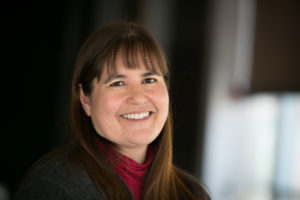By Alicia Kitsuse, The Funders’ Network
I am a fan of grappling with issues through candid, small-group discussions, and last month’s “Navigating Relationships Between Place-Based Funders and Local Governments” funder forum in Ohio reminded me of why.
Jointly organized by the Greater Ohio Policy Center, Philanthropy Ohio, and TFN, the forum brought 15 Ohio-based funders together with a handful of local elected officials for an honest exchange about creating mutually beneficial relationships that move their city forward. In the process, participants on both sides shared their frustrations about working across the philanthropic and public sectors, explained the constraints and pressures under which they operate, and described what real partnership meant from their perspectives. The virtues of the “safe space for dialogue” are already well extolled in our line of work, so let me just say that the forum affirmed my appreciation for the power of frank conversation to create opportunity for insight and change.
The “Navigating Relationships Between Place-Based Funders and Local Governments” forum highlighted how funders can bring complementary capacities and resources to local government that can enhance local revitalization initiatives and drive places forward. Funding out-of-town site visits to seed new ideas and fresh thinking, providing flexible operating support to foster key economic development efforts, and funding best practices research were all cited as important philanthropic investments in Ohio’s revitalizing cities and counties. However, competing visions between funders and government entities and differing demands and constraints on both parties can also stall progress and derail relationships.
Top Five Takeaways for Funders:
Here are the top five lessons I gleaned for funders looking to build effective working relationships with local officials and advance the revitalization cause.
| Take time to lay a groundwork of respect and trust. These fundamentals of interpersonal capital are local funders truest form of currency. Rather than asserting their priorities or rolling out a big idea, funders can show respect for elected and administrative officials by first asking how their foundation can be helpful, and then engaging officials in a discussion about how city and foundation priorities can be melded. Funders can build trust by collaborating on small-scale projects that show visible results. The forum speakers repeatedly invoked baseball metaphors along the line of “hit a bunch of singles” and “celebrate bunts.” |
| Work with officials to invest in data and expertise. Credible research that provides useful measures and benchmarks for your city or county can provide political actors the back-stop they need to support new initiatives. For example, data from an independent organization can provide an important evidence base to justify directing revitalization funding to certain parts of the city. Similarly, outside consulting groups supported by funders can help provide a buffer for politicians when difficult truths need to be delivered to the public or other city officials. |
| Deploy your storytelling capacity. Local foundations’ biggest asset is their ability to use the various communications tools at their disposal to tell stories that highlight the human impact of investments in the community. Partnering with government officials to lift up key local initiatives can build valuable working relationships while also serving an important public interest. |
| Civic engagement is an option. In situations where reasonable efforts to collaborate with local government have failed funders might consider building public support for new initiatives through civic engagement. Engaging disenfranchised groups and using non-traditional methods of engagement (e.g., involving arts organizations or enlisting youth in conducting outreach) can be especially effective in gaining officials’ attention. |
| Tend to the long game. Funders should also be cognizant of their ability to invest in the long-term civic health of their community through programs that develop public leadership talent and skills. Staying focused on the long game can be especially constructive during periods when relationships with local government are frayed and civic trust is low. |
About the Author
Alicia Kitsuse is Director of TFN’s Older Industrial Cities Program.

